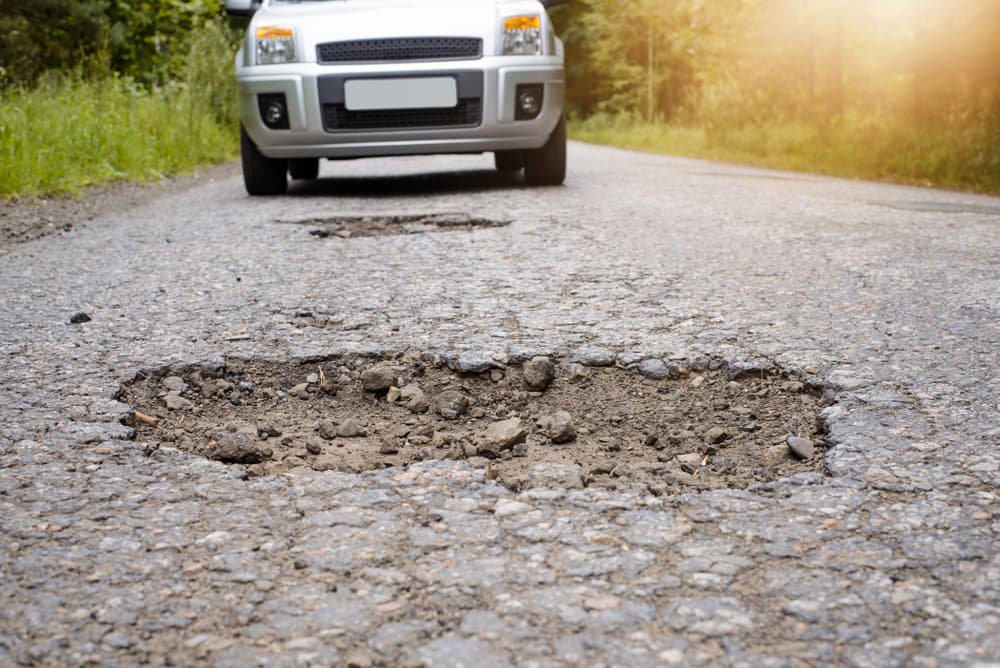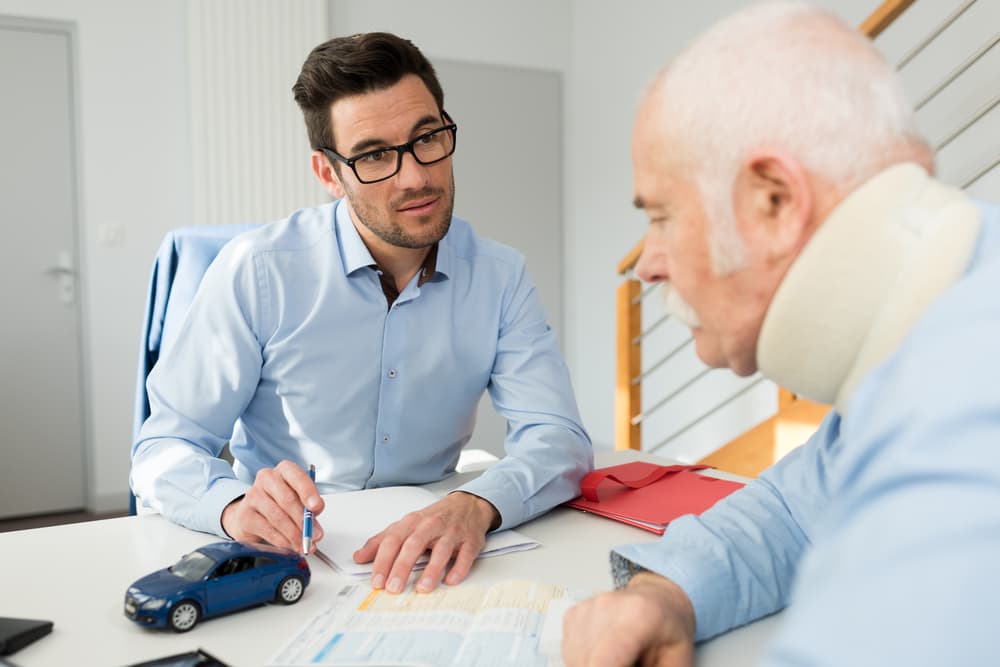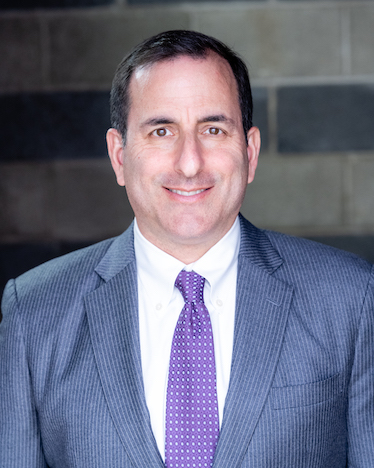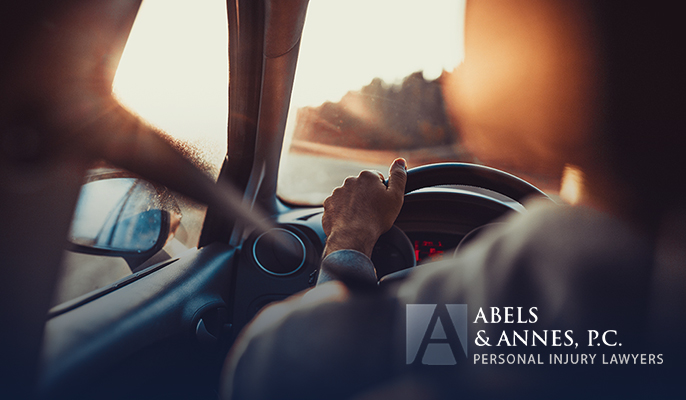Proving liability can often be challenging in car accident claims, even if the situation seems straightforward. Liability can become significantly more complicated when an accident happens for reasons other than negligent drivers, such as road conditions. In these circumstances, an experienced personal injury attorney in your area can be an invaluable help.
Your lawyer can swiftly investigate your accident circumstances to determine who should be responsible for your injuries and losses. They can then file a claim with the appropriate insurance company or pursue litigation in the court system on your behalf. Throughout the process, your lawyer will aggressively fight for your legal rights and interests while pursuing the full financial compensation you need.
You must seek a consultation with a car accident attorney for them to accurately identify liability in your car accident case. Don’t wait; seek legal help now.
Common Road Hazards that Cause Car Crashes

When it comes to causes of car accidents, the first things that usually come to mind are reckless drivers or inclement weather conditions. While these factors certainly contribute to the high number of accidents on the road, there are other hazards that often go unnoticed. Severe potholes, construction debris, inadequate signage, excessive speed limits, inadequate congestion control, and improperly timed stop lights all play a significant role in causing car crashes.
Severe potholes can wreak havoc on your vehicle and, in some cases, cause you to lose control of your car. These deep pits in the road can damage your tires, suspension, or even cause a blowout, leading to a dangerous situation. When government agencies allow potholes to become dangerous, they can be liable for resulting crashes and damage.
Construction debris is another common hazard on the road. Whether it's loose gravel, construction equipment, or misplaced signage, these obstacles can surprise drivers and create dangerous situations. Construction companies that leave debris on the road can be responsible if a driver hits something unexpectedly and loses control of their car.
Inadequate signage can cause confusion and lead to accidents. If a road is poorly marked or if signs are missing or obscured, drivers may miss important information such as upcoming turns or speed limit changes. This lack of clarity can result in unexpected maneuvers and collisions. The local transportation department might be liable if they failed to make necessary updates and changes to signs in the area to keep drivers safe.
Excessive speed limits can also contribute to car accidents. When drivers are allowed to travel at high speeds, it increases the likelihood of losing control, especially in hazardous road conditions or when unexpected obstacles are encountered. If a speed limit was too high for a specific road and you crashed, your local government road planning departments can be liable.
Inadequate congestion control can lead to traffic jams and frustrated drivers. When roads are not properly designed or managed, it can result in bottlenecks, aggressive driving, and an increased risk of accidents. If recurring congestion causes rear-end collisions, merging accidents, or other crashes, local transportation authorities should cover any injuries and losses.
Improperly timed stop lights can also lead to car crashes. When traffic signals are not synchronized correctly, it can cause confusion and increase the likelihood of rear-end collisions or caused by drivers trying to beat the light. If you notice issues with the timing of stop lights in your area, report them to the appropriate traffic department.
If you have been in a car accident due to any of these factors, seek legal representation immediately. A knowledgeable car accident attorney can identify when an agency or company should be liable for a road hazard that caused your crash. These cases are often significantly more complicated than accident claims against other drivers, and there might be much shorter deadlines. Act quickly and seek a highly experienced attorney.
Filing Claims for Road Hazard Accidents
Once your car accident lawyer determines the cause of the crash and who should be liable, they must file the proper claims to seek compensation for your losses. This might include claims against:
- Private corporations: If construction or road crews were responsible for the hazard, your attorney will pursue claims against their corporate liability insurance policies.
- Government agencies: If a public entity is liable, your car accident attorney must follow specific rules under state law to provide notice and file claims against the government, which can be a highly complex process.
Sometimes, other drivers might also be involved in these accidents, which can increase the complexity of the claim process.
How to Prove that a Road Hazard Caused a Car Accident
Establishing that a road hazard caused a car accident involves comprehensively examining the circumstances and gathering compelling evidence. Your car accident attorney can handle this process while you focus on your medical treatment.
Eyewitness accounts can play a crucial role in establishing that a particular road hazard contributed to an accident. Gathering statements from individuals who witnessed the event helps corroborate the presence of the hazard and its effect on the unfolding incident. Their firsthand observations can provide valuable perspectives that strengthen the case.
Examining the vehicle's damage and identifying specific patterns or points of impact can further establish a direct connection to the road hazard. For instance, if the collision resulted from a pothole, the pattern of damage on the vehicle may align with the location and characteristics of the hazard. Such forensic analysis aids in building a persuasive argument linking the accident to the identified hazard.
Furthermore, obtaining professional opinions, such as assessments from accident reconstruction specialists or engineers, can add credibility to the claim. These professionals can analyze the accident scene, vehicle damage, and other relevant factors to assess how the road hazard contributed to the collision. Their experience strengthens the case by offering a scientific and authoritative perspective.
Reviewing maintenance records and reports from local authorities can also be pivotal. If the hazard was known or reported – but not addressed – it establishes negligence on the part of responsible parties, such as government agencies or property owners. This negligence substantiates the connection between the road hazard and the accident.
Medical documentation is another crucial element in proving causation. Detailed records of injuries sustained in the accident and medical opinions linking those injuries to the specific circumstances of the collision build a compelling narrative. This can include professional testimony from healthcare professionals who can establish a direct connection between the road hazard and the accident victim's injuries.
Proving that a road hazard caused a car accident involves a multifaceted approach. Documentation of the scene, eyewitness accounts, forensic analysis of vehicle damage, professional opinions, maintenance records, and medical documentation collectively build a robust case. By assembling a comprehensive body of evidence, the connection between the road hazard and the accident becomes clear, strengthening the likelihood of a successful claim or lawsuit.
Recovering Monetary Compensation for Car Accident Injuries
When a road hazard causes a car accident, accident victims may pursue various monetary damages to address the physical, emotional, and financial repercussions they endure. One primary category of damages is compensatory damages, which aim to reimburse the victim for actual losses incurred due to the accident. This includes medical expenses, covering the costs of hospital visits, surgeries, medications, and any necessary rehabilitation or therapy resulting from injuries sustained in the accident.
Additionally, victims can seek compensation for property damage. This involves the costs associated with repairing or replacing the damaged vehicle and any personal belongings inside it during the collision. Documented estimates and invoices for repair work or replacement value substantiate these damages.
Lost income and loss of earning capacity represent another significant aspect of compensatory damages. If the accident causes the victim to miss work due to injuries or recovery, they can claim compensation for the income they would have earned during that period. In cases where the injuries lead to a diminished ability to work or pursue certain occupations, victims may seek damages for the long-term effects on their earning capacity.
Pain and suffering, both physical and emotional, constitute non-economic damages that accident victims may pursue. Physical pain resulting from injuries, as well as emotional distress such as anxiety, depression, or post-traumatic stress disorder, can be challenging consequences of a car accident. Monetary compensation seeks to address these intangible losses, acknowledging the overall effect on the victim's well-being.
In cases of severe negligence or willful misconduct, punitive damages may be available. Unlike compensatory damages, punitive damages aim to punish the at-fault party and deter similar behavior in the future. However, they are not always applicable and typically require a higher standard of proof.
Loss of consortium, a unique category, compensates the injured accident victim's family for the negative effects the accident has on their relationships. This may include the loss of companionship, support, or the ability to maintain a normal family life.
The types of monetary damages available to an accident victim when a road hazard causes a car accident are diverse. Compensatory damages encompass medical expenses, property damage, lost income, and loss of earning capacity, while non-economic damages address pain and suffering. Punitive damages may also be available in cases of extreme negligence, and the loss of consortium compensates the victim's family for relational losses. Understanding these categories allows accident victims to pursue a comprehensive claim that reflects the full extent of their losses.
How a Car Accident Lawyer Can Help

Engaging a car accident lawyer becomes crucial when injuries stem from an accident caused by a road hazard. Experienced attorneys play a pivotal role in navigating the legal complexities and securing the best possible outcome for the victim. One of the primary ways a lawyer assists is by conducting a thorough investigation into the circumstances surrounding the accident. This includes gathering evidence at the scene, analyzing witness statements, and collaborating with professionals, such as accident reconstruction specialists, to establish a clear connection between the road hazard and the resulting injuries.
A skilled lawyer is adept at assessing liability, determining the party – a government entity responsible for road maintenance, a private property owner, or another driver – bears responsibility for the road hazard. This evaluation is essential for building a robust case that establishes negligence on the part of the at-fault individual or entity.
Navigating insurance claims can be complex, and a car accident lawyer provides invaluable assistance. They can communicate with insurance companies on behalf of the victim, ensuring that the victim's rights remain protected and that they receive fair compensation for medical expenses, property damage, and other losses. The lawyer's experience allows them to negotiate effectively and advocate for the victim's best interests throughout the claims process.
A car accident lawyer is ready to prosecute the case if negotiations fail to reach a fair settlement. They can guide the accident victim through the legal proceedings, presenting a compelling case and advocating for just compensation. Their legal experience allows them to navigate courtroom procedures, present evidence convincingly, and address any legal challenges that may arise throughout the process.
Moreover, a car accident lawyer plays a crucial role in determining the full extent of damages. They work closely with medical professionals to assess the immediate and long-term effects of injuries on the accident victim's life. This comprehensive evaluation ensures that all relevant damages, including medical expenses, lost income, pain and suffering, and potential long-term consequences, are considered when seeking compensation.
A car accident lawyer serves as a vital ally for individuals who suffer injuries in accidents resulting from road hazards. From conducting thorough investigations to negotiating with insurance companies and representing the victim in court, their experience guides the legal process, ensuring the victim's rights are upheld and securing the most favorable outcome possible.
Contact a Car Accident Lawyer Right Away
If you suffered injuries in a car accident that resulted from a road hazard, you need to retain the legal help that you need right away. An experienced personal injury attorney in your area can promptly file a claim or lawsuit on your behalf to pursue the financial recovery you need and will work diligently to support your legal rights and interests.

